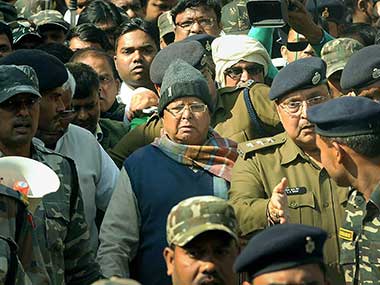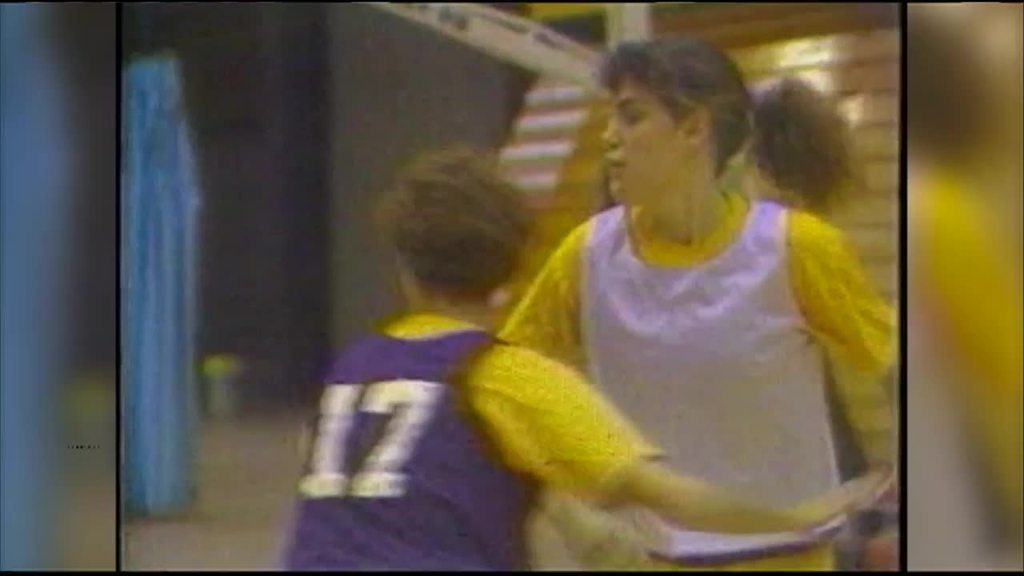
Editor’s note: Amit Khare, the additional chief secretary of Jharkhand, blew the lid off the fodder scam two decades ago. It was on 23 December last year that RJD supremo Lalu Prasad Yadav was finally convicted and sentenced to three-and-a-half years in jail. The following is his account of the uncovering of the fodder scam.
It was a cold winter morning on 27 January, 1996, when I raided the Chaibasa Treasury, and the offices and farms of the animal husbandry department located in a corner of the old British Raj building, and started verifying the bills of the department. To my horror, practically all of them were of the same amount (Rs 9.9 lakh), of the same supplier and all of which prima facie appeared to be bogus.
By the time I called the district animal husbandry officer (DAHO) and his subordinates to seek an explanation, they had all run away from their offices. I then decided to personally visit the office of DAHO along with my magistrates. I was shocked to find cash, bank drafts and a large number of fake Treasury Bills littered all over, making it quite apparent that they had fled in a hurry.
By 12 noon, I had asked my magistrates to start sealing the offices of the animal husbandry department, ordered the State Bank of India’s Treasury Branch to stop all payments of animal husbandry and alerted all police stations to ensure that records are kept safely so that the wrongdoers do not get an opportunity to destroy them.
Finally, after cross-verifying with the accountant general’s office and the state finance department, it was clear that the amounts withdrawn from the treasury were even more than the states’ total budget for the department. I lodged the first FIR in the series of cases which were later described by many as the fodder scam.
Another verdict came on Saturday in the fodder scam. I watched as TV screens flash ‘Breaking News’, reporting on the fraudulent withdrawal of government money from the Deoghar Treasury.
Reams of pages have been written about how the fraudulent bills were made by the suppliers with the collusion of state officials, how cash and bank drafts were recovered by the teams who had raided the offices and how the entire administrative and financial systems were subverted by those very people who were supposed to be its protector. All this was done in the name of supply of fodder to animals in practically all the districts of what was then south Bihar.
People ask me: Was I not afraid for my career and the security of my family? Some even commented that the state police would implicate me in these cases.
To be honest, none of these thoughts came to my mind when I began. When I was a student of IIM Ahmedabad, one of my teachers (Professor Kuchhal) used to say that “too much of analysis leads to decision paralysis”. I am glad I did not waste my time thinking about my career or my family, or of my future. Otherwise, I would not have been able to take the decision of starting the inquiry into the fodder scam.
Why did I do it? The answer is that most of us joined the civil services as a career with a dream of making a new India. And as deputy commissioner, who is the administrative head of the district, it was my duty.
But I didn’t do all this alone. There was an alert Hindi and English language press who immediately flashed the story not only in the state but all over India. Of course, I did later become some sort of a local hero, because of the press coverage.
But there were many ‘unsung’ heroes. Lal Shyama Charan Nath Sahdeo, the additional deputy commissioner, meticulously checked the accounts of the entire treasury; VS Deshmukh, the superintendent of police, who immediately alerted all the police stations and made security arrangements so that evidence was not destroyed; the Sadar SDO, Fidelis Toppo, and the second officer, Binod Chandra Jha, who were instrumental in sealing the offices and farms of the animal husbandry department; and the large number of block development officers and circle officers who ensured that the material evidence was properly collected and secured. Most of these officers were from the state services. Many were willing to take the “risk” for a better state of affairs.
But this leads me to my last question. These officers were all there even before I became the deputy commissioner. Why were they silent earlier? Perhaps when the subordinate officers saw that their deputy commissioner was willing to risk his career (and maybe also his life), they found a moral calling to bring out the truth.
Many years ago, when I was a young SDO in the tribal Latehar area, Baba Amte had come during his Bharat Jodo Yatra and had said “Jo nek hain woh anek hain, unhe ek banene ki jaroorat hai (there are many honest people, they just need to come together).”
If you bring them on a common platform and build upon their latent goodness, it would perhaps be the beginning of a ‘New India’.
The author is presently development commissioner, Jharkhand.
source:-firstpost




